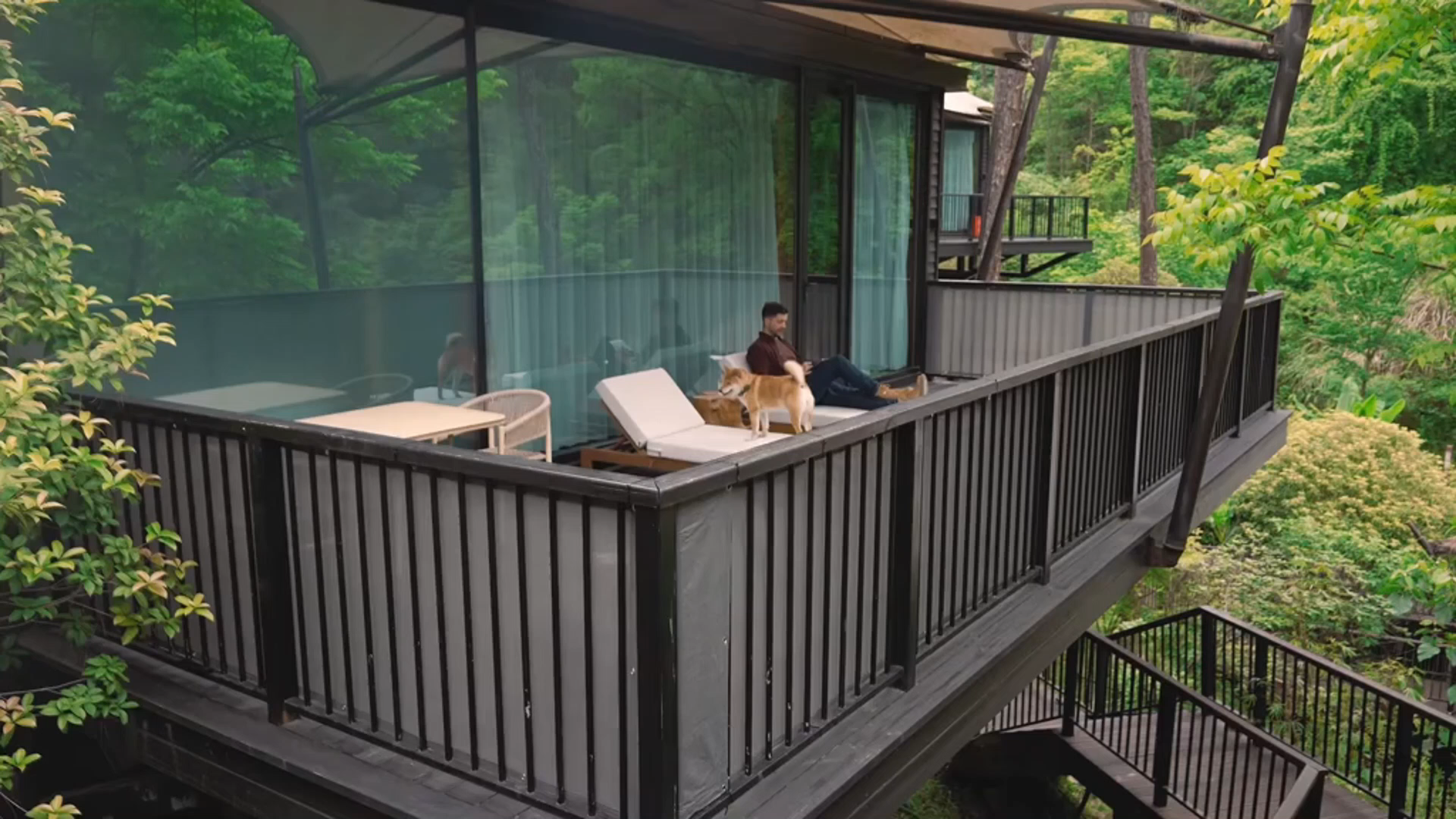Is the best hammock the best hammock for you? Not necessarily, because your favorite hammock is not necessarily the best hammock for you.
There is no best, only better. Whether this hammock is the best or not must be defined by you, but whether it is the best for you or not, there are some objective elements to consider, including the attributes of the hammock, the material, the construction, and so on. The reasoning behind this is the same as if you were looking for a partner.
But unlike finding a partner, you can turn the best hammock into the most suitable hammock possible. The trick is to understand the hammock.
This article is to help you understand hammocks, identify your needs, and help you find the best hammock that is most suitable for you.
What is a hammock?
A hammock is a type of lightweight bedding with swinging as its biggest selling point. Compared to traditional bedding, a hammock that swings slightly allows a person to get a deeper sleep for a longer period, improving the efficiency of one's rest. Hammocks are functional and versatile and can be used in a variety of locations, making them an excellent outdoor recreational item.
Must-have information for choosing a hammock
Attributes
- Length
The commonly available length of a hammock is 75 inches (1.9 meters) or more, which is the necessary length to accommodate a person's height, and a total length of 9 feet - 14 feet if you count the length of the ends.
- Widths
The different widths divide hammocks into single and double hammocks, with single hammocks being over 55 inches (1.4 meters) wide and double hammocks being over 55 inches (1.4 meters) wide.
- Height
The distance between the ropes at each end of the hammock adds up to a minimum of 4 feet. The minimum height of the hammock when not in use should be about 1.5 feet above the ground, which can be adjusted according to the person's sitting habits to confirm the most comfortable height.
- Weight
The average camping hammock is made of lightweight nylon and weighs between 0.8kg and 1kg, anything heavier is not competitive and every little bit of weight is valuable to the camper. Home hammocks weigh more than 2kg.
Weight capacity: A reasonable weight capacity for a single hammock is 350 lbs (160kg) or more, and for a double hammock is 440 lbs (200kg) or more.
Please note that this refers to static load capacity. Please be aware of the number of people using the hammock at the same time and try not to jump on the hammock.
Material
The most common materials on the market are nylon fiber, polyester fiber, cotton, and canvas.
Nylon Fiber: Breathable, easy to dry, tough, hard to tear, lightweight, and tactile, its advantages are very prominent and it is the most suitable material for camping hammocks. But its disadvantages are also very prominent, the synthetic material may not be easy for some people to accept, and it is costly.
Polyester: fine, moisture-proof, durable, tactile, and best of all, it's fast-drying, with outstanding moisture-wicking and drying properties. It is the most versatile fabric and can be used in most climates and scenarios. It has no significant drawbacks and is the material with the best sense of balance.
Cotton: Affordability is one of its greatest strengths, it is also one of the more common quilt materials, soft, breathable, and smooth. The patterns and stripes quilted on top of the cotton are also a big selling point for it, and you can choose your favorite pattern. However, being prone to moisture is its biggest drawback, so try not to leave it outside in wet weather.
Canvas: sturdy, breathable and durable. Relatively low maintenance, but the texture is not as good as several other materials.
The above materials are not the only ones that can be used individually, but a combination of them is also one of the good design ideas, so please consider them together.
Structure
Built-in Straight Spreader Bars: The built-in hammock bars are designed to keep the hammock flat and maximize the width of the hammock while keeping you in a natural sleeping position. Prevents your spine from curving.
No built-in spreader bar: Without a built-in spreader bar, the ropes at both ends of the hammock are tied directly to the end, resulting in the hammock's sides bending towards the center, which somewhat affects the actual usable size. In practice, you can feel that it is more difficult to hang accurately, and it is not easy to find and maintain a comfortable hanging position. Getting in and out of the hammock also becomes more cumbersome for children. The upside is that it is lightweight and easy to carry.
Built-in curved spreader bar: If a full piece of built-in hammock bar makes you feel insecure, a hammock without a built-in spreader bar makes you feel constricted. A built-in curved hammock bar is designed to strike a balance between the two.
Attachments
A hammock doesn't work alone, it needs accessories to make it more effective.
Hammock accessories
- Ropes and spreader bars
Strictly speaking, ropes and spreader bars are not classified as accessories.
Generally speaking, ropes are polyester ropes, which are much more durable than cotton hammock ropes and are resistant to mold and moisture. Spreader bars are made of metal such as stainless steel or wood such as beech or bamboo.
- Hammock stand
Support the hammock for easy movement and are made of metal or wood.
- Underquilt
Warm bedding that is fixed underneath the hammock.
- Sleeping pad
Protects the back from the cold and has the advantage over the under quilt of protecting the spine from curvature.
Accessories for camping (extra)
- Rain tarp
- Bug nets
- Hooks
- Connectors
- Chains
Some directions for choosing a hammock
Safety: Home hammocks that emphasize safety prefer double hammocks with built-in curved spreader bars and stands.
Comfort: Hammocks made of a combination of cotton and polyester provide both indoor and outdoor comfort.
Portability: Portable hammocks are preferred to hammocks made of nylon fibers without built-in spreader bars, the lowest weight is only 0.8kg, easy to fold, and are the most space-saving.
Honest evaluation:
Built-in boom hammock to maximize hammock area and be friendly to your body.
It is recommended to purchase a hammock with a stand that is angled to best fit your hammock.
Conclusion
The hammock that is right for you should not only be of superior quality and meet your preferences, but it should also be rationally evaluated and fit your needs. It is after such careful selection that it will provide you with the most comfortable experience for a long time.




